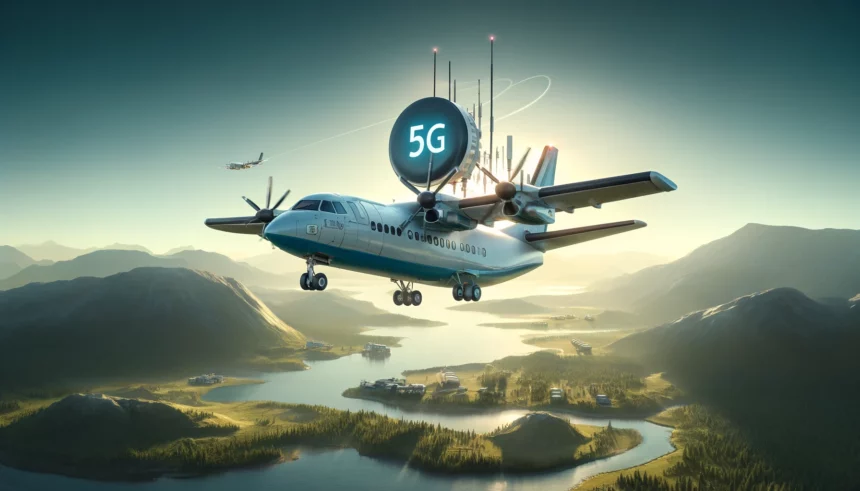A groundbreaking 5G connectivity trial has recently concluded, demonstrating significant advancements in airborne network systems. The trial featured a Britten-Norman Islander aircraft outfitted with a cutting-edge 5G system developed by Stratospheric Platforms Limited (SPL), a leading developer in Non-Terrestrial Networks telecommunications.
5G Innovation in the Sky
This new 5G system is designed to provide extensive, high-performance coverage, particularly valuable in areas where traditional network infrastructures are unavailable or compromised, such as during natural disasters. This technology can quickly restore essential communications, aiding emergency response and recovery efforts.
A key event at Britten-Norman’s Solent Airport facility allowed potential investors and customers to see the technology in action under real flight conditions, showcasing its integration and functionality.
Trial Highlights and Next Steps
The trials, conducted by Britten-Norman’s Flight Test Organization, were crucial in verifying the aircraft’s ability to safely operate with the new 5G phased array antenna installed. The tests assessed the aircraft’s performance in normal and emergency scenarios to support full certification of the system, which will enable its integration into existing terrestrial telecom networks. This integration aims to provide connection speeds of up to 200Mbps over an area of 15,000km².
The Britten-Norman BN2T-4S Islander, selected for its robust design and versatility, proved ideal for the trials. Its capability to handle all-weather conditions and carry significant payloads made it the perfect platform for testing large mission-specific systems while retaining flexibility for various operational roles.
The next phase will involve connecting the system to a private UK-based national 5G network, moving one step closer to broad deployment.
Impact on Global Connectivity
Richard Deakin, CEO of Stratospheric Platforms, commented on the project’s implications for global communications. “Our innovative high-altitude platforms are set to redefine connectivity, especially in remote and underserved areas,” said Deakin. He emphasized that this trial represents a significant step toward validating the technology’s effectiveness.
This successful trial not only highlights the potential of 5G to enhance global connectivity but also sets the stage for future innovations that could ensure reliable, high-speed internet access in the most challenging environments.
These advancements in 5G technology promise to revolutionize how we connect across the globe, particularly in locations where traditional communication methods are limited or nonexistent, fostering a more connected and accessible world.
















